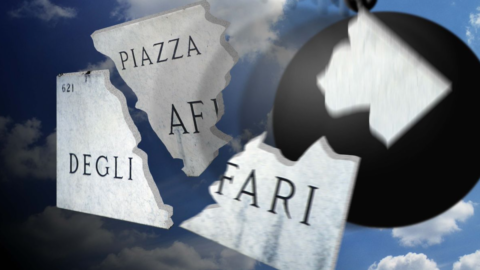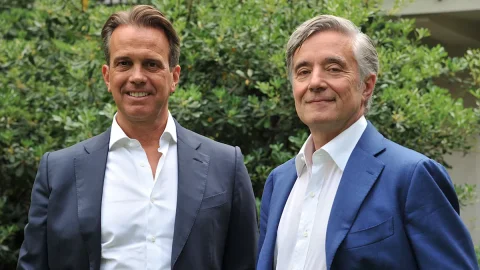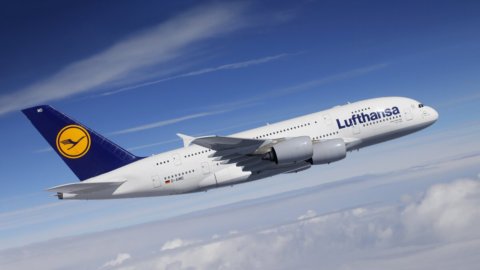Poorer and poorer is the cry that accompanies populist protests around the planet. Richer and richer, is the reality that emerges from the irresistible march of luxury, capable of successfully resisting pandemics, wars and rate hikes. It is the verdict that emerges, only partially by surprise, come on stock markets. But Made in Italy luxury has its cards to play and dreams of a great return to Piazza Affari. Let's compare the most solid of the digital economy stocks, ie Apple Lossless Audio CODEC (ALAC),, with the flagship of the brands, lvmh. Apple, like the other big names in the sector, is coming out of a difficult year in which it lost a trillion in value on Wall Street, where today it still capitalizes 18 times its profits. Blame for fewer purchases, even more for the problems of China, its first market for both iPhone production and sales.
Luxury the big winner of the markets: Lvmh, Hermès, Kering have multiple records
In the same period Lvmh, the empire of 70 and more brands of Bernard Arnault, the richest man in the world, has climbed to the top of the European indices. Today, completed the landing in Tiffany, the group is close to 300 billion euros in value. The markets recognize him a price/earnings ratio of around 29 times, in line with the other Parisian giants, from Hermès a Kering. Not to mention other icons of hard luxury, you see Richemont.
A bubble? No, for at least two reasons. The first is that luxury hasn't been easy for years. On the contrary. In recent years, the system has defeated the gilets jaunes who also wanted to transform the Champs Elysées into their Bastille. As well as the pandemic closure of the Chinese metropolis, the main customers of the brands. Not to mention the blocking of tourist flows from Asia to Europe and all the other calamities since the war that emptied via Montenapoleone of the flow of fairies arriving from Moscow. Regardless of obstacles, i luxury titles they continued to weather the storms. Today, the luxury giants are preparing to cash in on the fruits of the reopening of Beijing e Shanghaias well as the return of Chinese buyers to Europe for the Year of the Rabbit (starting January 22).
There is no sector that escapes the appetites of the big names in luxury
The recovery season coincides with the profound changes that have invested the sector in these complex but formidable years, in which the tribe of the rich has grown globally together with those that aspire to uproot it. The concept of luxury is no longer limited within traditional boundaries but has infected a large part of manufacturing, from cars to food, and even more the world of services: catering, hotels, travel, leisure management. There is no sector that escapes the appetites of the gods Big of luxury: belonging to the luxury club, teaches Ferrari, is now the basic requirement to be able to count on excellent multiples. Thanks to the hunger for shopping that unites the rich old and new at every latitude.
Hence the drive to transform the big names from simple ones fashion houses ad increasingly complex companies, active in all activities in which a brand increases value, whether it is a champagne or a tie. This also explains the movements within the sector: the French groups, after collecting brands, are transferring the management of creativity to the best executives, but concentrating the levers of power on the top floors, in the hands of a family-based capitalism, as demonstrated by Arnault/Lvmh, Pinault/Kering not to mention the Hermès tribe. It happens (but it is not a coincidence) that in this selection the women and men of the Made in Italy, the result of an extraordinary selection of taste that descends from the Renaissance or even further. Thus deserves to celebrate the achievements of Pietro beccari, today at Lvmh guide after multiplying the sales by three Dior in four years or of the other axes, from Alessandro Michele a Grace Chiuri e Frances Bellettini.
From Prada to Zegna, Milan dreams of a great return to Piazza Affari
What role can Italy play with its luxury companies and Business Square especially in this situation? Limit yourself to acting as a nursery for French teams, churning out talent of various kinds for the most prestigious brands? Or is there also a space for successful Made in Italy? On closer inspection, many things are also moving in the Bel Paese in several directions. To the point that it is not risky to think of a turning point year.
1) It is not excluded that the consolidation of the sector will continue in 2023 through theM&A activity. Among the most popular names Salvatore Ferragamo which could take advantage of the rediscovered brilliance of Asian shopping. Also watch out for Tod’s, after the failed delisting. The group's natural destination is in the Lvmh empire.
2) Alongside sales, however, the idea of a qualitative leap takes shape: no longer simple brands, but more complex companies on the model of the French big names. One could thus explain the entry of Andrea Guerra in the group Prada. In addition to tutoring a Bertelli junior, the manager could favor the growth of a multi-brand group, as Bertelli himself already attempted at the beginning of the millennium. In this sense could be interpreted the appointment of Gianfranco D'Attis, as CEO of the Prada brand. It could be the first step towards a broader design, the goal that HDP failed at the time.
3) In this key, moreover, it is also moving Zegna, Prada's ally in shopping for quality companies, a treasure that risks being lost. Zegna, now listed on Wall Street thanks to a SPAC promoted by Carlo Bonomi, could choose the path of dual listing, helping the recovery of Business Square, Stock market in serious decline but which could intercept the interest of the market. As well as Prada, listed in Hong Kong. OR Renzo Rosso which extends its interests also to wine. Farms, the company that produces and distributes Amarone and other fine wines from the Venezie, is firmly controlled by Boscaini family who has guided the business since the foundation of the company in 1772. The stake is equal to 73,5% of the capital. Renzo Rosso, the founder of Diesel, has invested in the company and holds a 10% stake. Without neglecting Remo ruffini di Moncler, Partner of Stone island which he also denies (as well as XNUMX Diego Della Valle) that there is room to compete with the greats of France, who have now won the global challenge.
4) But Italy can play its part in this global game "because the prairies of luxury are truly infinite" he underlines David Pambianco. “There is room for us too – he says – in the luxury sport linked to the tastes of Millennials and Gen Z. It is here that Italian groups can find fertile ground to grow up”.
Provided that finance also knows how to think big. Along with the recovery of Essilor Luxottica, the entry of Prada and Zegna alone could ensure a great leap in quality to the market as a showcase of Italian luxury. Waiting for Exor's accomplice to find space for the real jewel: the empire Armani. Difficult, but dreaming is allowed.





